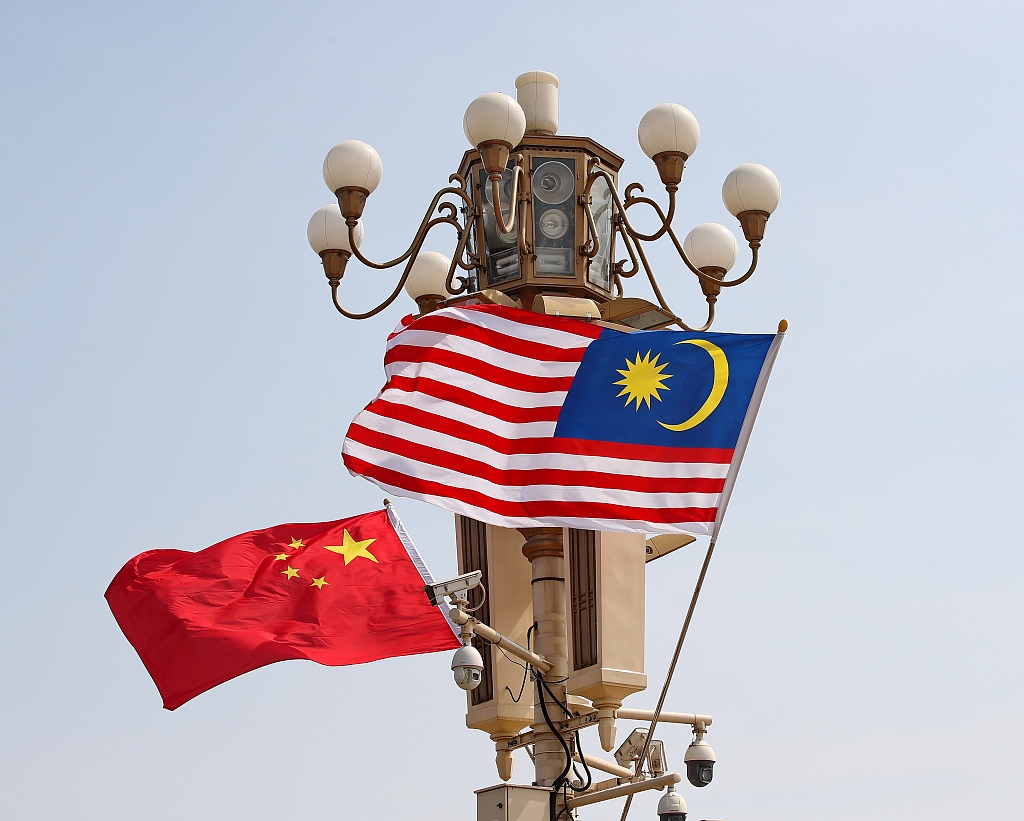Flame of longtime friendship burns brightly
By Roy Anthony Roger | China Daily Global | Updated: 2024-06-13 09:06

On May 31, Malaysia and China celebrated 50 years of diplomatic relations. Bilateral diplomatic ties between the countries began with the signing of a joint communique in Beijing on May 31, 1974. Since then, Malaysia has upheld the one-China principle.
Over the past 50 years, the two governments have signed several agreements that are at the core of the relationship between Kuala Lumpur and Beijing.
The economy is one of the main aspects of Malaysia-China relations and China has been Malaysia's largest trading partner for 15 consecutive years.
In 2023, China held 21 percent of Malaysia's total trade, while in the first quarter of this year, trade with China further expanded 3.3 percent year-on-year to over 112 billion yuan ($23.9 billion).
Investment cooperation has yielded significant results, creating a mutually beneficial situation.
The Malaysia-China Kuantan Industrial Park, which is a testament to the strong cooperation between the two countries, is celebrating its 10th anniversary. It has seen the signing of 13 projects, with investment agreements exceeding 46 billion yuan, and a total industrial output worth 60 billion yuan. The ongoing construction of the East Coast Rail Line and the Baleh Hydroelectric Dam, Sarawak, built by China Gezhouba Group, are further examples of the two sides' fruitful collaboration. These projects hold the potential to supply sufficient resources for Sarawak's future development.
The construction of the Gemas-Johor Bahru Electric Double Track Project by a Chinese company is also progressing well, with 94 percent of it completed and full completion expected later this year.
China helped Malaysia with its COVID-19 immunization program by supplying 12 million Sinovac vaccines, and in September 2021, China contributed another 1 million doses of the vaccine to Malaysia. This is part of the health diplomacy between the two countries. China is promoting the concept of the Health Silk Road, which is cooperation in the field of health and medicine under the framework of the Belt and Road Initiative.
In addition, in the post-pandemic era, the Malaysian and Chinese governments agreed to strengthen cooperation by forming the Malaysia-China Post-Pandemic Cooperation High-Level Committee.
Post-pandemic ASEAN-China cooperation should focus on three aspects, namely promoting trade and investment, strengthening the Regional Comprehensive Economic Partnership and facilitating cross-border travel. The two governments have also agreed to increase cooperation through the BRI, especially with regard to the Malaysia-China Kuantan Industrial Park and Qinzhou China-Malaysia Industrial Park projects, and the development of Kuantan port and stations along the East Coast Rail Line. Chinese companies are also constructing the Gemas-Johor Bahru Electric Double Track Rail Project.
It should be emphasized that during Malaysian Prime Minister Datuk Seri Anwar Ibrahim's visit to China in March 2023, a consensus was reached with Chinese President Xi Jinping proposing the building of a China-Malaysia community with a shared future, which has become a blueprint for the development of future China-Malaysia relations. In addition, in September 2023, Anwar visited China to attend the 20th China-ASEAN Expo and promoted joint efforts to create more stable and smooth regional industrial chains and supply chains. Malaysia-China relations were further strengthened that year with the exchange of visits by the leaders of the legislative bodies, namely Zhao Zhanshu, chairman of the Standing Committee of the National People's Congress of China, and Tan Sri Johari Abdul, speaker of the Malaysian House of Representatives.
At the same time, there are challenges in bilateral relations, including in the South China Sea. However, Malaysia and China have agreed to resolve the issue peacefully and through dialogue without the use of force or the involvement of third parties. Diplomatic relations between Malaysia and China are still strong as the relationship was built five decades ago. In any bilateral relationship there are bound to be challenges and problems, but the two countries handle the problems that exist in the spirit of comradeship.
The future cooperation between Malaysia and China, especially over the next 50 years, should be focused on cooperation in the fields of education and technology transfer from China to Malaysia. This includes sectors such as green technology, new energy automobiles, telecommunications and aerospace. At the same time, China should intensify its educational path. It will involve second-track diplomacy. Sincerity is the key to eternal friendship. The two countries should deepen people-to-people and intercultural exchanges, encourage exchange visits between young people of the two countries, and expand academic cooperation and scientific research cooperation, so that the candle of friendship continues to burn for future generations.
The author is an associate professor and deputy executive director of the Asia-Europe Institute at the University of Malaya and a member of the Belt and Road Initiative Caucus for the Asia Pacific.
























